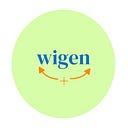Embracing Uncertainty: How Kurt Gödel’s Incompleteness Theorems Inspire Innovation and Resilience.
In the realm of mathematical logic, Kurt Gödel’s Incompleteness Theorems revolutionized our understanding of the capabilities and limitations of formal systems. But beyond the numbers and symbols, these principles harbor profound philosophical insights that are remarkably relevant to everyday human experiences. At their core, Gödel’s theorems remind us that our quest for knowledge is infinite and that embracing uncertainty can fuel creativity, resilience, and continual learning.
The Limitless Landscape of Human Knowledge
Gödel’s First Incompleteness Theorem reveals that in any sufficient mathematical framework, there are truths that simply cannot be proven within the confines of that system. Applied to daily life, this idea suggests that no single perspective, no matter how thorough, can encapsulate the entirety of truth. Every scientific theory, every philosophical school, every cultural norm is inherently incomplete.
This realization is not a verdict of futility but an invitation — an invitation to keep questioning and to remain open to ideas that challenge our prevailing viewpoints. It encourages humility and a readiness to accept that what we know is just a fraction of what there is to know. Embracing this can drive us toward greater innovation and deeper understanding, as we recognize that the horizon of knowledge is ever-expanding.
The Virtue of Persistent Inquiry
The pursuit of knowledge, motivated by the awareness of its infinite scope, becomes a journey rather than a destination. Each question answered leads to new questions, in an ongoing cycle that enriches our understanding and our experience. This boundless exploration is what drives scientific discovery, artistic expression, and philosophical debate. It fosters a culture where learning is valued and where the intellectual curiosity thrives, keeping societies vibrant and dynamic.
Finding Strength in Not Knowing
Gödel’s Second Incompleteness Theorem asserts that a system cannot demonstrate its own consistency using only its internal logic. In life, this underscores the unavoidable presence of uncertainty. We face countless situations where absolute certainty is unattainable, whether in our careers, personal lives, or global issues.
However, acknowledging these limitations doesn’t weaken our resolve — it strengthens it. It builds resilience as we learn to navigate ambiguity without the guarantee of clear answers. By understanding that not all problems have immediate solutions, we become better equipped to handle life’s unpredictabilities and complexities with grace and adaptability.
Beyond the Conventional: Innovation Through Interdisciplinary Approaches
Realizing that no single system or methodology can provide all the answers encourages us to look beyond traditional boundaries. It promotes an interdisciplinary approach where the blending of diverse fields can lead to breakthrough innovations in technology, medicine, and social policy. This cross-pollination of ideas is essential for tackling the multifaceted challenges of today’s world, from climate change to public health crises.
A Call for Ethical Reflection and Dialogue
The incompleteness of our systems of thought also carries ethical implications. It reminds us that our beliefs and values should be perpetually scrutinized and discussed. This continuous reevaluation is the bedrock of a progressive society that adapts and evolves through open dialogue and mutual respect among its members.
In embracing the lessons from Gödel’s Incompleteness Theorems, we find a powerful catalyst for growth and improvement. They teach us to cherish the journey of discovery, to find strength in uncertainty, and to innovate beyond the conventional. Let these principles guide us not just in academic or professional pursuits but as a foundational philosophy for living richly and fully in an ever-complex world.
